Home » Ovarian Cyst Removal Surgery In Hyderabad: What to expect
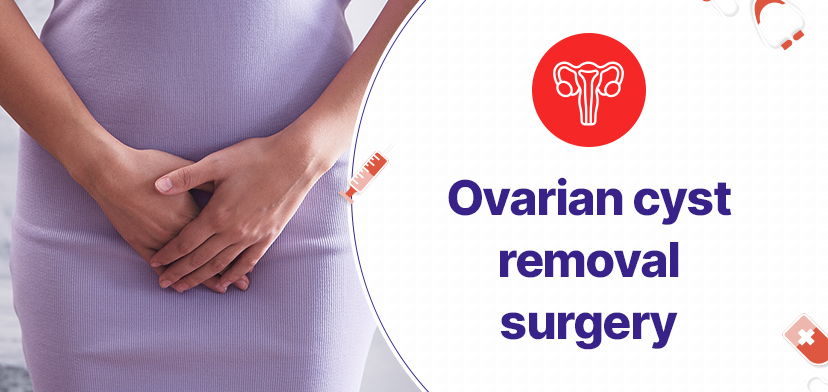
Those who have ovarian cysts may find surgery to be very stressful or unmotivated. A proper diagnosis and treatment plan, which may include ovarian cyst removal surgery, can bring about real relief and comfort.
But how exactly does ovarian cyst laparoscopic surgery work? In this article we will discuss each stage of the procedure in this post, from diagnostic to cost to recovery. We’ll go over what to expect, how to prepare for surgery, how much it will cost in Hyderabad, and how to recuperate. Our main objective is to make this process as straightforward and effective as we can. Keep in mind that you are not alone in these challenging circumstances. There are treatments that can help you. Choose the best gynaecologist for your ovarian cyst, receive a diagnosis, and take the necessary steps to feel better.
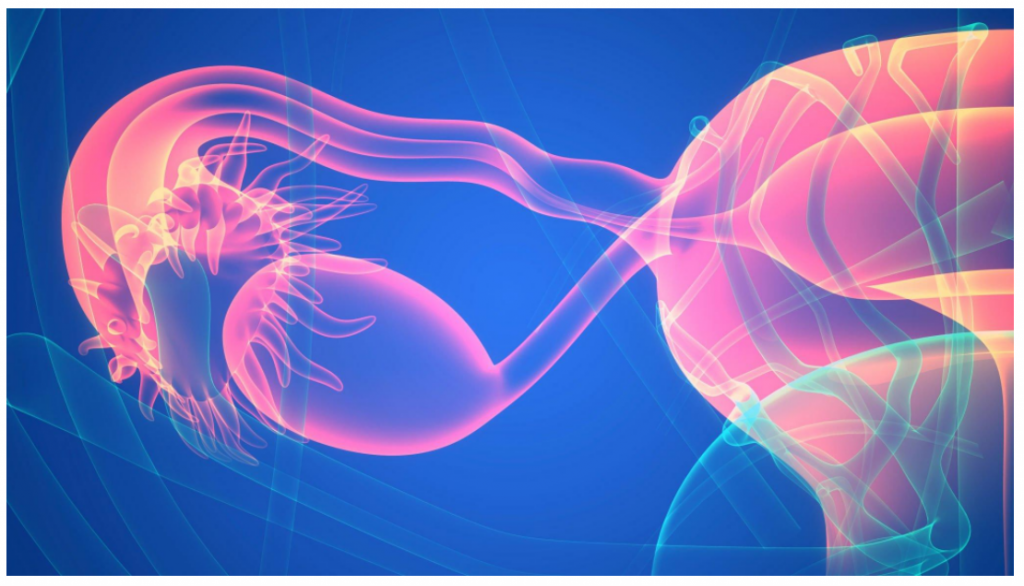
An ovarian cyst, which is a fluid-filled sac that develops inside or outside of a female’s ovary, is known. They frequently appear during ovulation, when the follicle breaks down and the egg is released. Yet, if the follicle does not collapse but instead begins to expand or if the egg is not delivered, certain cysts may develop. Symptoms of ovarian cysts might include discomfort, bloating, and irregular menstruation. Ovarian cysts can range in size from little to huge.
Genetic factors, endometriosis, polycystic ovary syndrome (PCOS), uterine fibroids, and other underlying medical disorders can all contribute to the development of ovarian cysts.
Ovarian cysts may also be more likely to form in some women due to lifestyle factors like obesity or inactivity.
Cysts may be caused by birth control pills, pelvic infections, hormone imbalances, tumours, and pelvic infections. Some cysts can also grow out of tissue that has been left over from previous operations.
It’s important to understand that many ovarian cysts are harmless and will go away on their own. Surgery is only performed if the cyst is large, uncomfortable, or causing other symptoms.
Although most ovarian cysts cure on their own, unresolved or untreated cysts can cause discomfort and agony. The following are the most common symptoms of an ovarian cyst:
The cyst may occasionally burst, producing excruciating discomfort. A cyst may occasionally expand and cause stomach bloating. You should seek medical attention as soon as you notice any of these symptoms so that your doctor can accurately diagnose you and provide the best course of therapy.
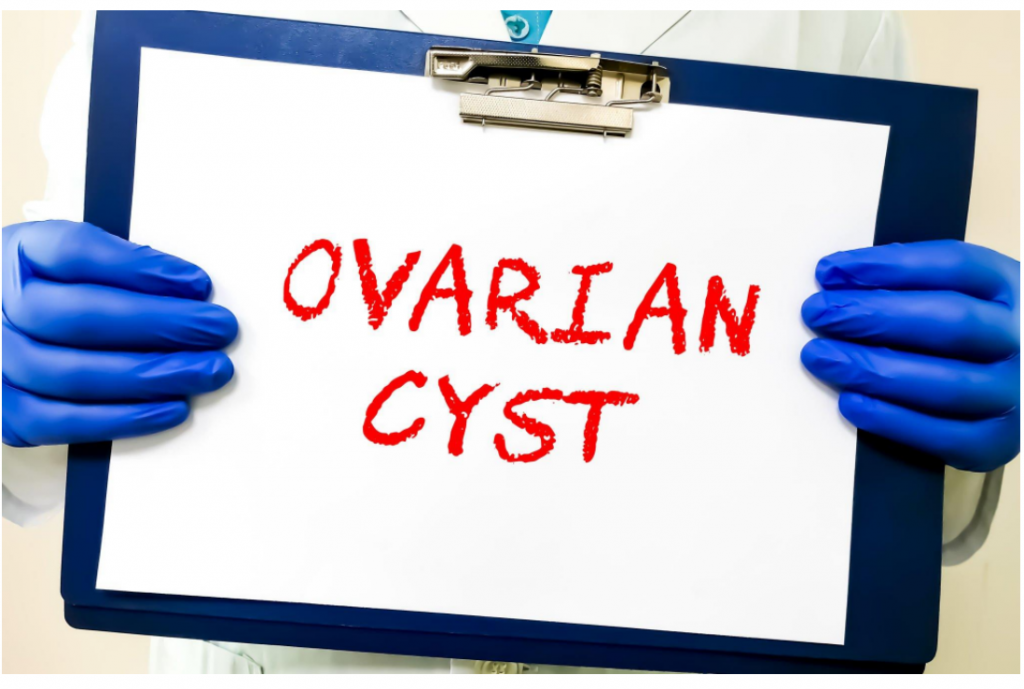
Ovarian Cyst Examination
Ovarian cysts can be detected with a physical examination, pregnancy test, blood work (tumour marker testing), ultrasound, or laparoscopy.
Ultrasound of the pelvic region
This method is required by the doctor in order to diagnose your cyst and propose a course of treatment. Furthermore, ultrasound can be used to monitor the cyst’s growth and detect alterations. There is no downtime required, and it is painless and non-invasive. It is a reliable way for tracking ovarian cysts and determining whether surgery is necessary.
Laparoscopy
To inspect the cyst, the doctor will make a small incision in your belly and insert a laparoscope. Depending on the size and shape of the cyst, the doctor may decide to remove it or leave it alone. If the cyst is removed, the cyst and surrounding tissue will be examined for signs of cancer or other disorders before being sent to a laboratory for further testing. The doctor may also need to remove adjacent lymph nodes or tissue to ensure that no malignant cells are present.
Examination of the blood
Cancer antigens are proteins that are looked for when testing for tumour markers. If the cyst appears to be solid and the patient is at high risk of developing ovarian cancer, a cancer antigen test or other relevant blood tests may be performed. CA 125 levels can rise as a result of cancers and non-cancerous illnesses. As a result, they are not diagnostic in and of themselves. A CT scan or an MRI may be required to confirm the diagnosis.
Treatment for ovarian cysts is determined by the type of cyst, size, and related symptoms.
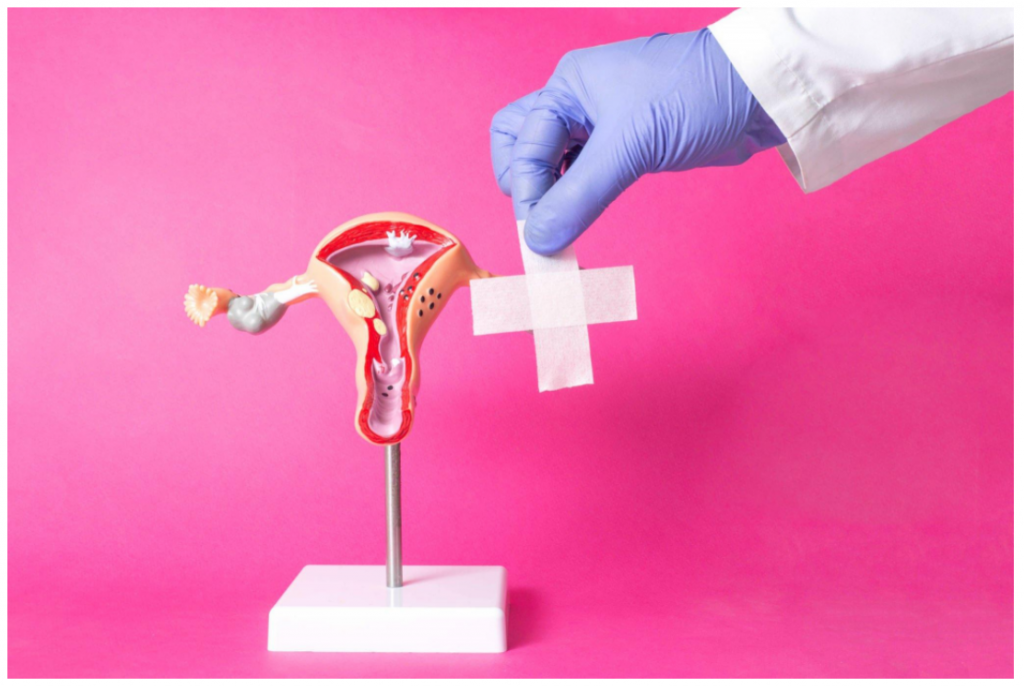
Here are some signs that you need to get ovarian cysts removed:
Before having surgery to remove an ovarian cyst, you should be prepared both physically and mentally. This means getting a full physical and discussing the pros and cons of the operation with your doctor. It is also crucial to be prepared for any potential complications following surgery.
Furthermore, ensure that you follow your doctor’s pre-operative test and treatment instructions and that you are physically fit for surgery. It is also critical to arrange for post-operative care, which includes obtaining the necessary medications, arranging transportation, and creating a soothing recovery environment.
Also, it is vital to plan ahead of time for treatment payment and to discuss the costs of ovarian cyst surgery with your doctor.
Surgery is frequently recommended for ovarian cysts that are large or unusual in appearance. If cysts cause discomfort or other symptoms, or if the patient is at risk of developing ovarian cancer, surgery may be recommended. The two main techniques used to treat ovarian cysts are laparoscopic cystectomy and laparotomy.
Laparoscopy Cystectomy
During the procedure, the surgeon will make a few small incisions in the abdomen and insert a laparoscope to check the inside. Laparoscopy is a minimally invasive surgical approach that is less invasive on the body than open surgery. This procedure is typically used to remove cysts, tissue, or lymph nodes. In most situations, healing is faster than with open surgery, and scarring is minimal.
Laparotomy for cystectomy
When the cyst is large or the doctor needs to extract adjacent lymph nodes or tissue to screen for the presence of tumor tissue, this treatment is usually used. During a laparotomy, a more intrusive type of surgery, a single incision is made in the lower belly. The recovery period is longer than with laparoscopy, and the surgery may result in a scar. You must consult with your doctor to ensure that the cyst does not reappear following surgery.
Recovery phase post Ovarian Cyst Surgery
Varying amounts of time will be required for recovery depending on the kind and complexity of the procedure. Following treatment, you are usually recommended to rest for a few days and avoid strenuous activity until your doctor gives you the all-clear. Painkillers will be administered if necessary. For a complete recovery, it is vital to follow all of the doctor’s advice.
Physical Activities and Diet After Surgery
You should adjust their diet and workout routine after surgery. A balanced diet rich in fruits and vegetables is necessary for a rapid recovery.
Your doctor may suggest you to go for walks or do other low-impact activities on a regular basis, gradually increasing the intensity as you restore strength and stamina. Even while some soreness may persist, it is crucial to follow all of the doctor’s advice in order to achieve the best results.
Risks and Complications in Ovarian Cyst Surgery
Like any other surgery, ovarian cyst surgery comes with risks and possible problems. There could be an infection, bleeding inside the body, or damage to the organs.
Before having surgery, it is important to know the risks and talk to the surgeon about them. The cyst can sometimes come back, so you have to go back for regular checkups to see if it has.

The procedure and the hospital where it is performed affect the Ovarian cyst surgery cost in Hyderabad. Because it is a more complicated and less invasive surgery, a laparoscopic cystectomy is frequently more expensive than a laparotomy. Ovarian cyst surgery cost in Hyderabad, normally range from 45,000 to 1,80,000 rupees.
City
Price Range (Min-Max)
Bangalore
Rs. 50000 – Rs. 1,00,000
Chandigarh
Rs. 65000 – 90,000
Chennai
Rs. 20,000 – 3,00,000
Gurgaon
Rs. 50,000 – 2,50,000
Indore
Rs. 65000 – 90000
Lucknow
Rs. 65000 – 90000
Mumbai
Rs. 20,000 – 2,50,000
Noida
Rs. 50,000 – 2,50,000
Patna
Rs. 65000 – 90000
Pune
Rs. 20,000 – 3,00,000
Aside from the cost of the surgery, other costs, such as those for medications, test results, and follow-up visits, may also be taken into account.
Also, patients should know that some doctors may need extra tests or treatments before and after surgery. Before making a decision, it’s important to know how much ovarian cyst removal surgery in Hyderabad could cost.
If a person needs a loan for ovarian cyst removal, GMoney can help with flexible payment terms, no collateral, and free medical EMI.
Patients can trust that GMoney will pay for their medical bills and let them get the best care for their problems without having to worry too much about how much the surgery will cost. They work with the best hospitals in Hyderabad, which is where you can find the best gynaecologist in Hyderabad for ovarian cysts
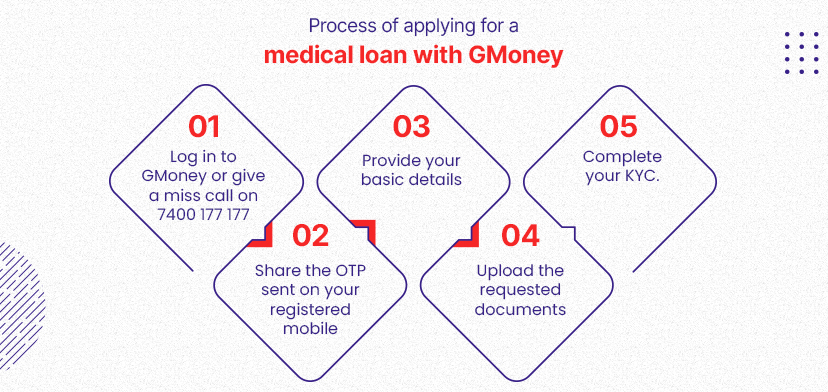
1. What exactly is ovarian cyst surgery?
Ovarian cyst surgery is a procedure for removing an ovarian cyst. The cyst could be benign or malignant, and surgery could include removing the entire ovary or only the cyst. The goal of the procedure is to remove the cyst while conserving as much of the ovary as possible.
2. What is the ovarian cyst surgery procedure?
Laparoscopic ovarian cyst surgery often entails making small incisions in the abdomen and inserting a camera and equipment through them. The surgeon will then find and remove the cyst. In some circumstances, larger cysts or cysts located deep in the abdomen may demand open abdominal surgery.
3. What are the risks with ovarian cyst surgery?
Ovarian cyst surgery, like any other surgical procedure, has risks. Infection, haemorrhage, organ damage, and blood clots are examples of complications. Furthermore, if the cysts are not completely removed, they may return.
4. What may I expect after ovarian cyst surgery?
Following ovarian cyst surgery, you may experience abdominal pain and discomfort. You may also experience nausea and exhaustion. It is crucial to follow your doctor’s recovery advice, which may include taking pain medicines and avoiding strenuous exercise.
5. How much does ovarian cyst surgery cost in Hyderabad?
The cost of ovarian cyst surgery varies depending on your treatments, intricacy, hospital of choice, and other factors. In general, it can range from Rs. 25,000 up to 3,00,000, depending on the treatment’s complexity and other factors.
6. How long does it take to recover from ovarian cyst surgery?
The recovery period after ovarian cyst surgery may vary depending on the procedure and other factors. In general, most patients should be able to resume normal activities within a few weeks of treatment/
7. How long is the GMoney no-cost EMI for ovarian cyst surgery?
GMoney offers a variable payback time, allowing consumers to choose a loan period ranging from three to eighteen months based on their ability to pay.
8. What documents are needed to apply for no-cost EMI?
You must submit the following documents online:
Aadhar Card, Pan Card, and Bank Statement for the Previous Three Months
Surgery to remove ovarian cysts is common and has a low chance of going wrong. It is very important to understand the risks, possible costs, and possible ways to pay for the surgery. People who need to pay for ovarian cyst surgery can use GMoney because they can get a loan quickly and easily, and they can choose when to pay it back. If done right, ovarian cyst surgery can be a safe and effective way to treat the problem.
Disclaimer: THIS WEBSITE DOES NOT PROVIDE MEDICAL ADVICE.
Follow us
Reach us
Mumbai HO
GMoney Pvt. Ltd.
315, 215 Atrium,
Next to Courtyard by Marriott,,
A.K. Road, Andheri East,
Mumbai - 400093
Ph : +91 86570 00105, +91 72089 60444
Quick Links
Bengaluru
GMoney Technologies Pvt. Ltd.
Oyo Work Spaces, Umiya Emporium,
Opposite Forum Mall, Hosur Rd,
Koramangala, Bengaluru,
Karnataka 560029
Ph : +91 89717 34815
Delhi
GMoney Technologies Pvt. Ltd.
Berry Co Works, 1E/3,
Jhandewalan extension,
Next to jhandewalan metro station
gate no. 2 Barakhambha Road,
New Delhi, Delhi 110001
Ph : +91 97116 26832
Pune
GMoney Technologies Pvt. Ltd.
91 Spring Board, Sky Loft,
Creaticity Mall, Off, Airport Rd,
opposite Golf Course, Shastrinagar,
Yerawada, Pune,
Maharashtra 411006
Ph : +91 84250 28758
Chandigarh
GMoney Technologies Pvt. Ltd.
SCO no. 292,
First Floor, Sector 35D,
Chandigarh
Ph : +91 84279 82012
Jaipur
GMoney Pvt. Ltd.
CODESKK Civil Tower,121 122,
Pandit TN Mishra Marg,
Santhosh Nagar, Nirman Nagar,
Jaipur – 302019
Ahmedabad
GMoney Pvt. Ltd.
22nd Floor, B Block,
Westgate By True Value,
Nr. YMCA Club, SG Highway,
Ahmedabad – 380051
Hyderabad
GMoney Pvt. Ltd.
Dwaraka Pride,
Plot no. 4/1, Survey No. 64,
Huda Techno Enclave, Madhapur,
Hyderabad (Telangana) – 500081
Chennai
GMoney Pvt. Ltd.
DBS Business Center, 31A,
Cathedral Garden Rd, Badrikari, Tirumurthy Nagar, Nungambakkam, Chennai, Tamil
Nadu – 600 034
Mumbai HO
GMoney Pvt. Ltd.
315, 215 Atrium,
Next to Courtyard by Marriott,,
A.K. Road, Andheri East,
Mumbai - 400093
Ph : +91 86570 00105, +91 72089 60444
Bengaluru
GMoney Pvt. Ltd.
Oyo Work Spaces,
Umiya Emporium,
Opp. Forum Mall, Hosur Rd,
Koramangala, Bengaluru,
Karnataka - 560029
Ph : +91 72089 60444
Pune
GMoney Pvt. Ltd.
91 Spring Board, Sky Loft,
Creaticity Mall, Airport Rd,
Opp. Golf Course, Shastrinagar,
Yerawada, Pune,
Maharashtra - 411006
Ph : +91 72089 60444
Delhi
GMoney Pvt. Ltd.
Berry Co Works, 1E/3,
Jhandewalan extension,
Gate no. 2 Barakhambha Road,
New Delhi, Delhi - 110001
Ph :
+91 72089 60444
Chandigarh
GMoney Pvt. Ltd.
SCO No. 292,
First Floor, Sector 35D,
Chandigarh - 160022
Ph : +91 72089 60444
Ahmedabad
GMoney Pvt. Ltd.
22nd Floor, B Block,
Westgate By True Value,
Nr. YMCA Club, SG Highway,
Ahmedabad - 380051
Hyderabad
GMoney Pvt. Ltd.
Dwaraka Pride,
Plot no. 4/1, Survey No. 64,
Huda Techno Enclave, Madhapur,
Hyderabad (Telangana) - 500081
Jaipur
GMoney Pvt. Ltd.
CODESKK Civil Tower,121 122,
Pandit TN Mishra Marg,
Santhosh Nagar, Nirman Nagar,
Jaipur - 302019
Chennai
GMoney Pvt. Ltd.
DBS Business Center, 31A,
Cathedral Garden Rd, Badrikari,
Tirumurthy Nagar,Nungambakkam, Chennai,
Tamil
Nadu - 600 034
Pune | Mumbai | New Delhi | Kolkata | Chennai | Navi Mumbai| Bengaluru | Ahmedabad | Nagpur | Hyderabad | Jaipur | Lucknow | Bhopal | Bhubaneswar | Nashik | Indore | Ghaziabad | Kanpur | Amritsar | Vasai | Noida | Gurugram | Chandigarh | Ranchi | Cuttack | Thane | Kalyan | Jalandhar | Kolhapur | Visakhapatnam | Chakan| Greater Noida | Wagholi | Raipur | Panvel | Belgaum | Mohali | Bhiwandi | Talegaon | Coimbatore | Palghar | Mumbra | Sangli | Surat | Durgapur | Ludhiana | Kochi | Agra | Ahmednagar | Ajmer | Akola | Aurangabad | Baroda | Beed | Rewari | Patiala | Vellore | Ranjangaon | Nanded | Nellore | Panipat | Panjim | Madurai | Mysore | Mangalore | Korba | Mathura | Kalaburagi | Jalgaon | Kharar | Guwahati | Kollam | Jamshedpur | Gwalior | Saswad | Solapur | Varanasi | Salem | Sambalpur | Jodhpur | Hubli | Panchkula | Faridabad | Amravati | Ayodhya | Badlapur | Dehradun | Parbhani | Ujjain | Udaipur | Tiruchirappalli | Srinagar | Shimla | Secunderabad | Ratnagiri | Pandharpur | Ananthapuram | Buldhana | Hadapsar | Baramati | Chittoor | Darjeeling | Dhule | Fatehpur | Gandhinagar | Haridwar | Gorakhpur | Jhansi | Kanchipuram | Kartarpur | Kurukshetra | Pondicherry | Prayagraj | Bharuch | Bhusawal | Bathinda | Pathankot | Nandurbar | Niphad | Kolar | Ambala | Kota | Pendurthi | Jabalpur | Palwal | Bhilai | Bhiwani | Bilaspur | Patna | Rohtak | Phagwara | Malegaon | Vijayawada | Bikaner | Chiplun | Darbhanga | Roorkee | Bhor | Rajahmundry | Margao | Alwar | Dhanbad | Bulandshahr | Aluva | Mulshi | Davanagere | Kapurthala | Anantapur | Loni | Latur | Gondia | Chhindwara | Chandrapur | Dharmapuri-TN | Faridkot | Dharwad | Daund | Chaksu | Bareilly | Kakinada | Haldwani | Doddaballapur | Dindori-MH | Bagru | Kudus | Kozhikode | Gurdaspur | Bokaro | Berhampur | Batala | Barrackpore | Ramgarh | Meerut | Bassi | Dera Bassi | Howrah | Karjat Raigarh | Thiruvananthapuram | Bheemunipatnam | Ambegoan | Allahabad | Aligarh | Alappuzha | Tirupathi | Thoppumpady | Srikakulam | Siliguri | Rourkela | Mirzapur | Gadag | Bellary | Tumkur | Sonipat | Hoshangabad | Junnar | Jalna | Hisar | Karnal | Kottayam | Muzzafarnagar | Ramnagara | Thrissur | Bahadurgarh | Balasore | Baraut | Dhar | Ernakulam | Gadhinglaj | Chikodi | Vaniyambadi | Kamothe |